For thousands of years, Jewish communities across the world have preserved their traditions through food. From the spice-laden dishes of Sephardic kitchens to the hearty staples of Ashkenazi homes, food has been a way to pass down culture, values, and even healing practices from generation to generation.
Naomi Spector, a Sephardi teacher, writer, and herbalist, has dedicated her work to exploring Jewish foodways, herbalism, and plant traditions—particularly the recipes and remedies that sustained everyday Jewish families. She believes that preparing and eating traditional foods nourishes not just the body, but also the soul, forging a connection to our ancestors.
Her beautifully crafted Jewish food pyramids highlight the dietary foundations of different Jewish communities, from Iraqi and Greek to Ashkenazi and Bnei Israel traditions. Each pyramid offers a glimpse into the regional flavors and ingredients that shaped Jewish cuisine, illustrating how Jewish food has adapted to diverse climates and cultures while maintaining its deep spiritual significance.
These graphics are more than just historical representations—they serve as a reminder of the resilience, ingenuity, and interconnectedness of the Jewish diaspora. Through these food traditions, we continue to honor our heritage, celebrate our diversity, and keep our ancestors’ wisdom alive at the table.

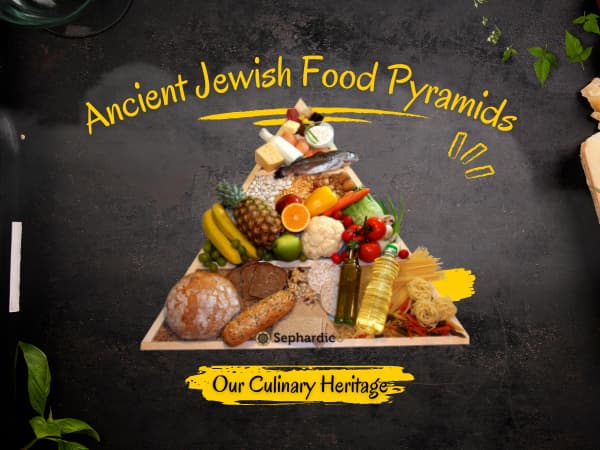

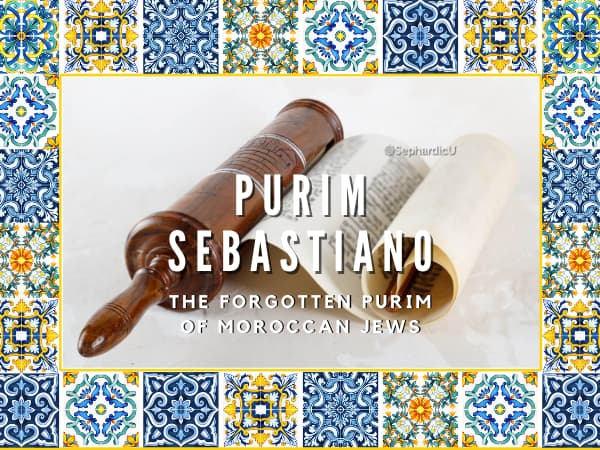
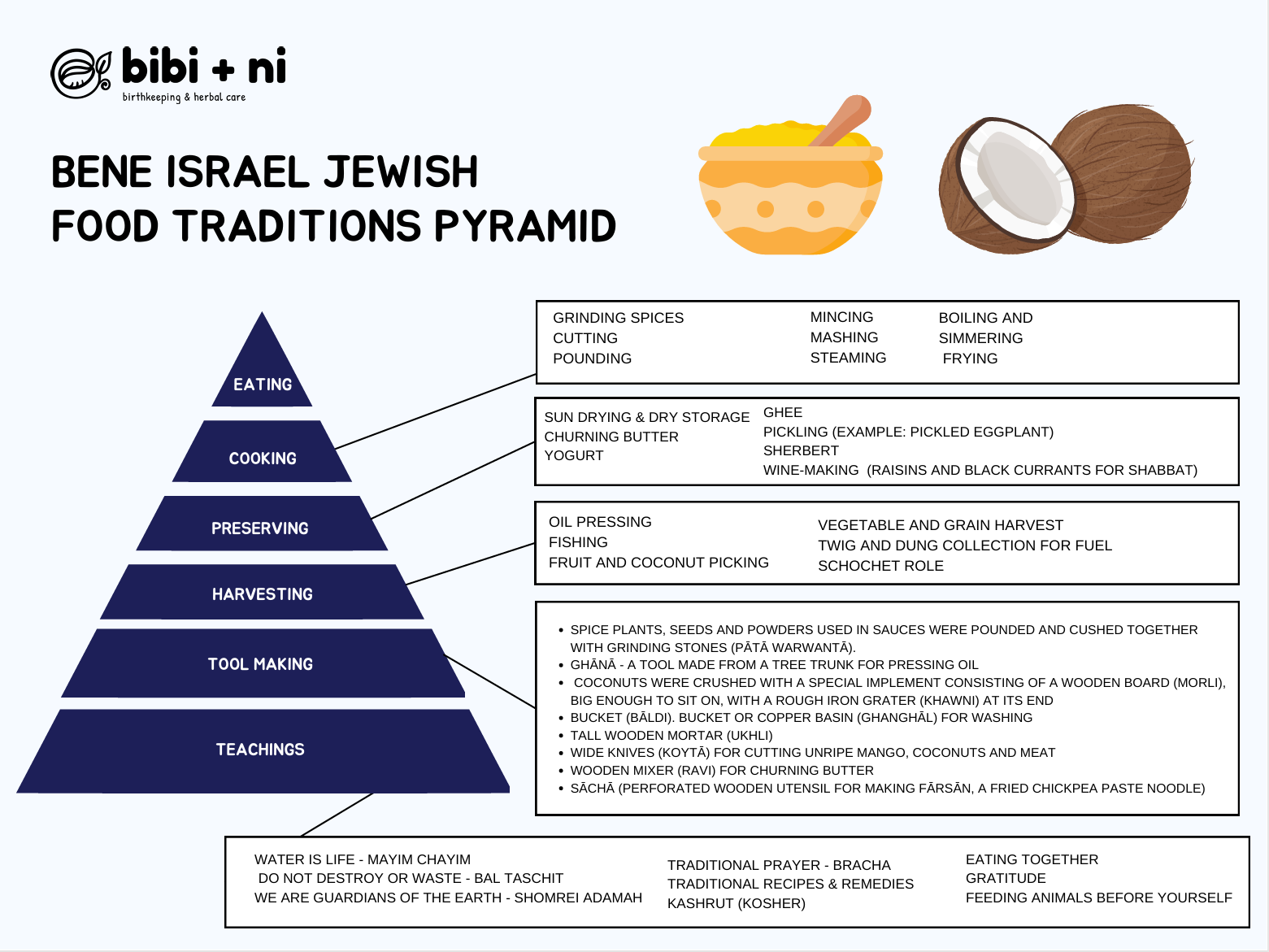
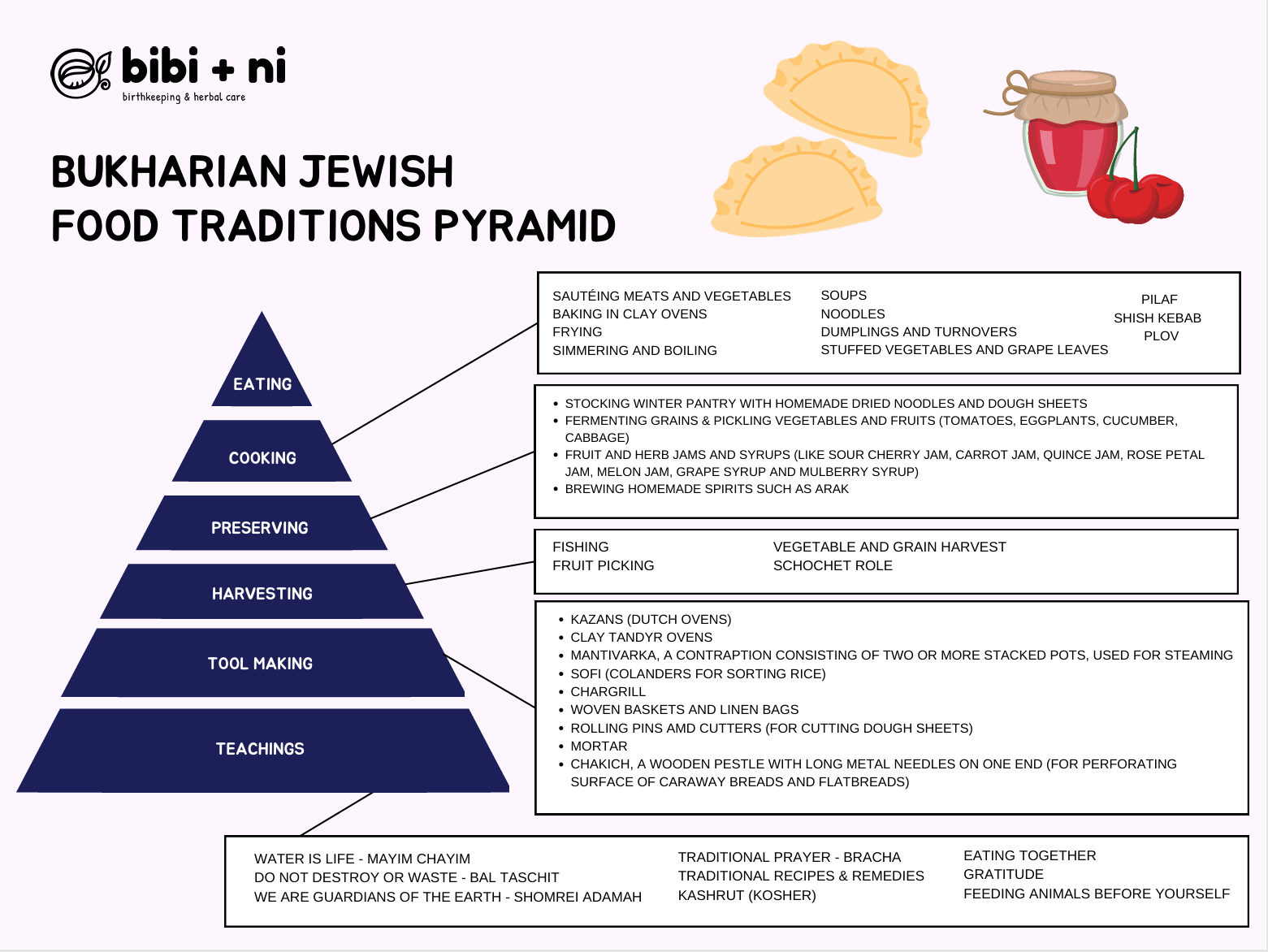
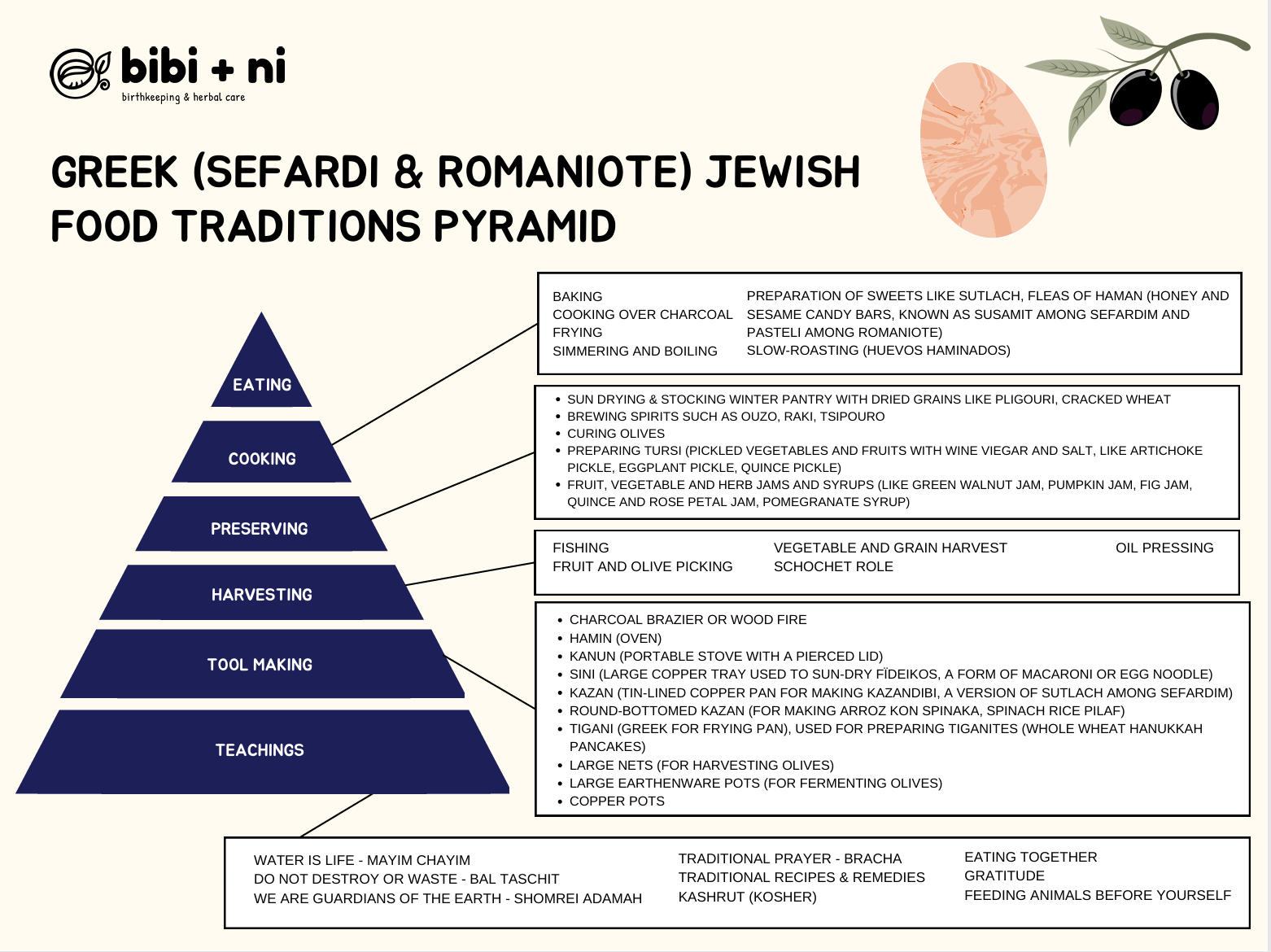
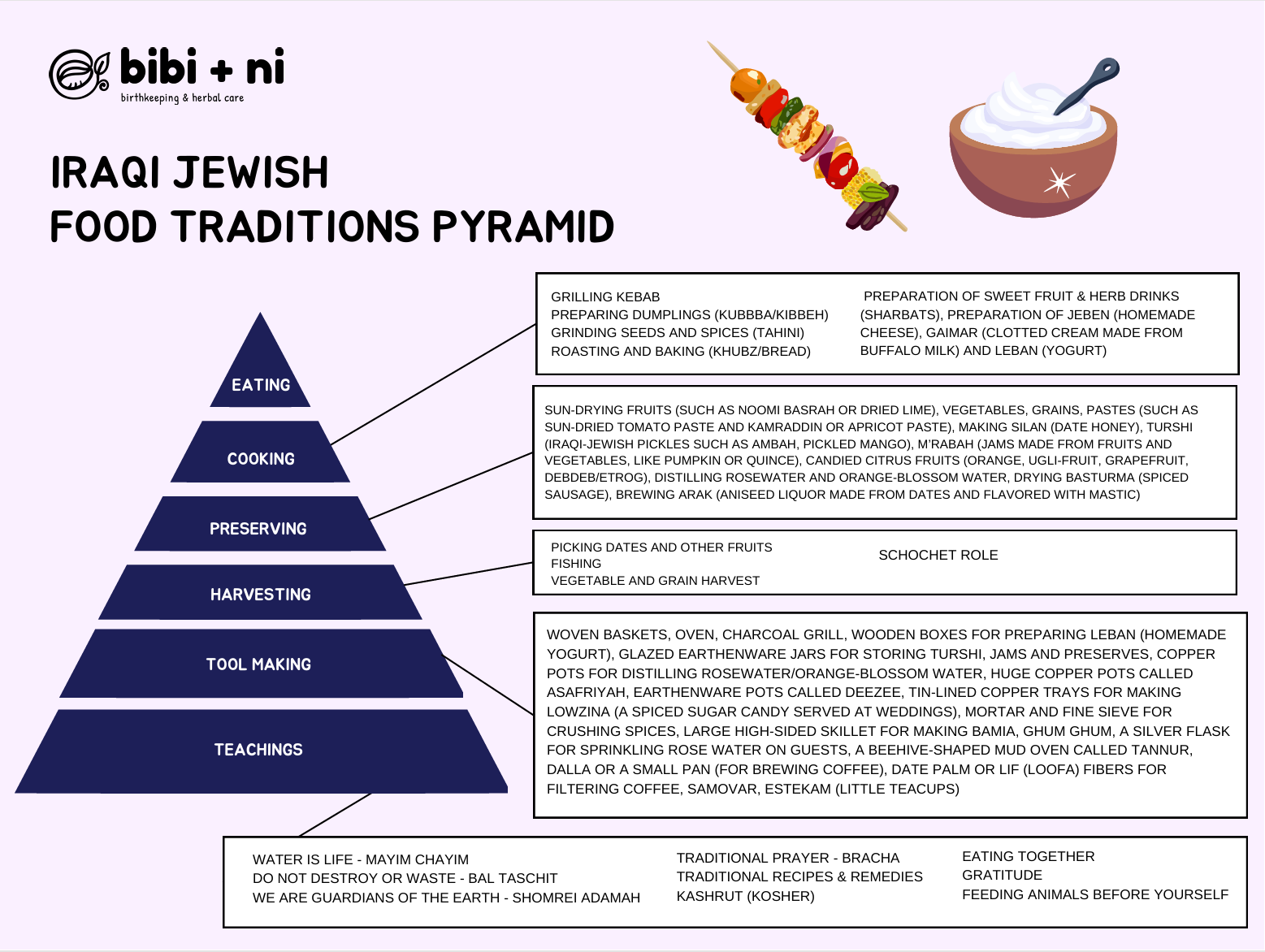
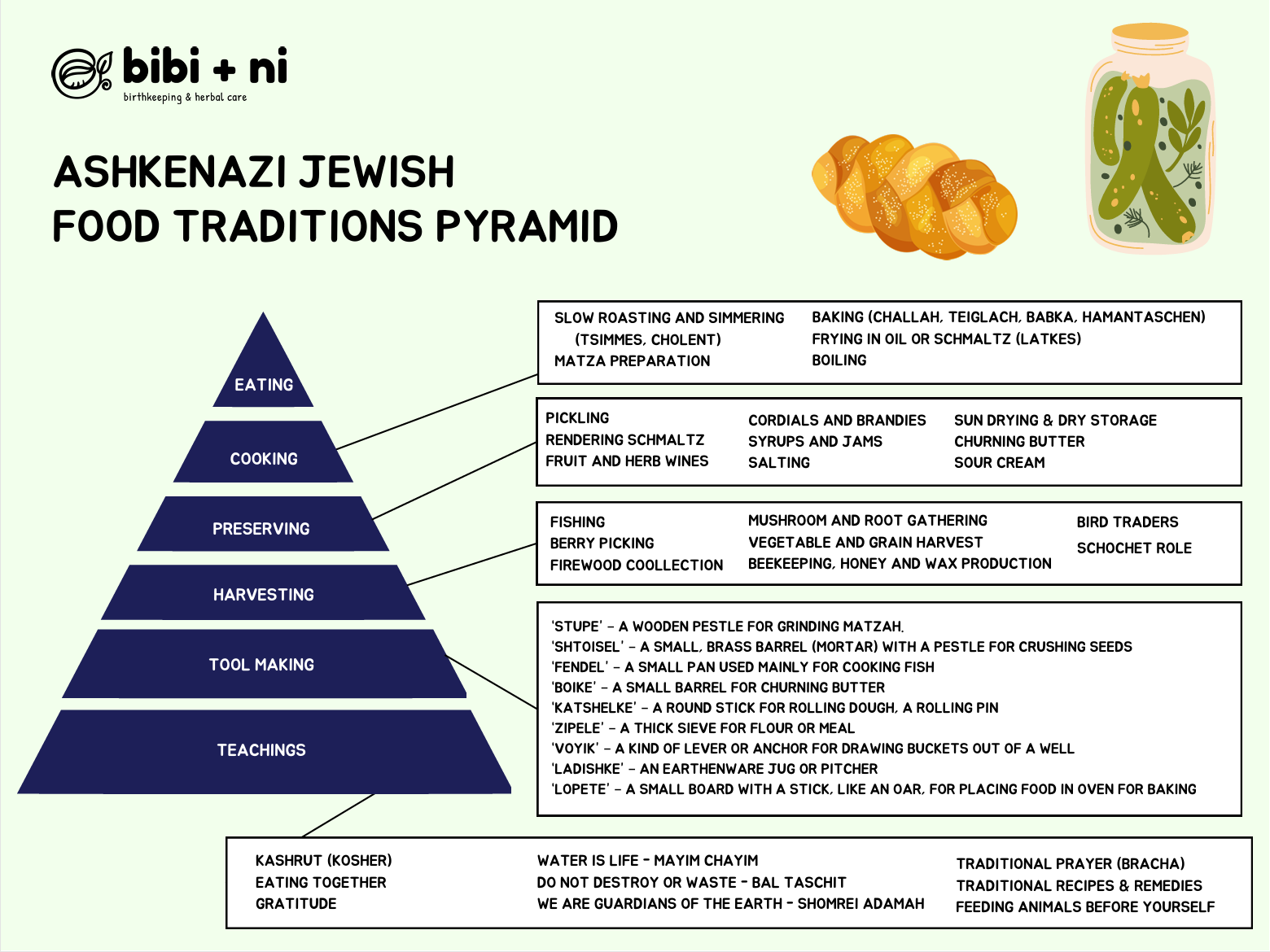




Ohr HaChaim Yomi – Tetzaveh